Publications
Articles, publications, books, tools and multimedia features from the U.S. Institute of Peace provide the latest news, analysis, research findings, practitioner guides and reports, all related to the conflict zones and issues that are at the center of the Institute’s work to prevent and reduce violent conflict.
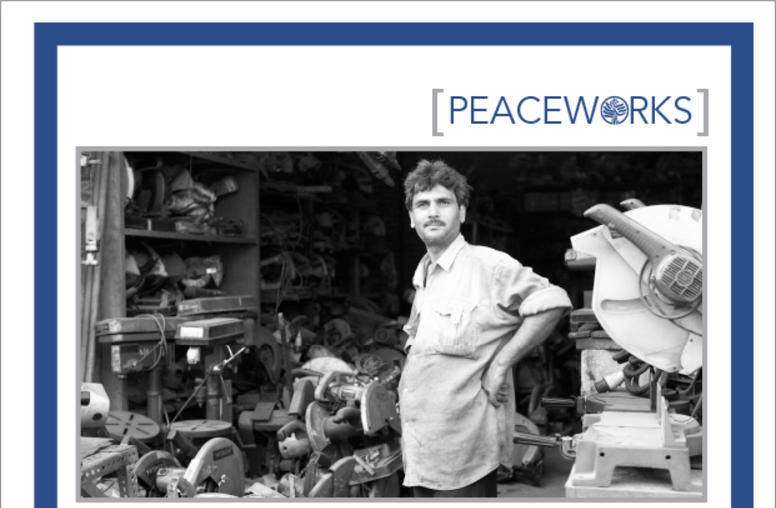
Informality in Karachi’s Land, Manufacturing and Transport Sectors
Rapid population growth, ethnicization, and a policy shift toward deregulation and privatization have contributed to a rise in informality in almost all of Karachi’s economic sectors. These factors have also diminished the state’s capacity to regulate the economy and maintain a monopoly over violence. In examining Karachi’s sizable land, manufacturing, and transport sectors, it becomes clear that informality can directly or indirectly contribute to instability, but also that instability has a...
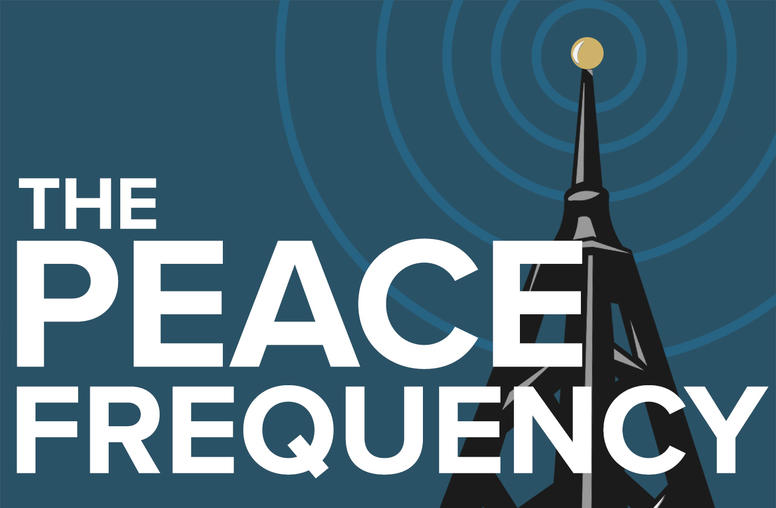
Episode 34 - Todd Walters
In this show we speak with Todd Walters – Founder and Executive Director of International Peace Park Expeditions. Walters has adapted Peace & Conflict Impact Assessment methodology to transboundary protected areas, and produced short documentary films in the Transcending Boundaries series which portray multiple stakeholder perspectives concerning environmental peacebuilding in transboundary protected areas.
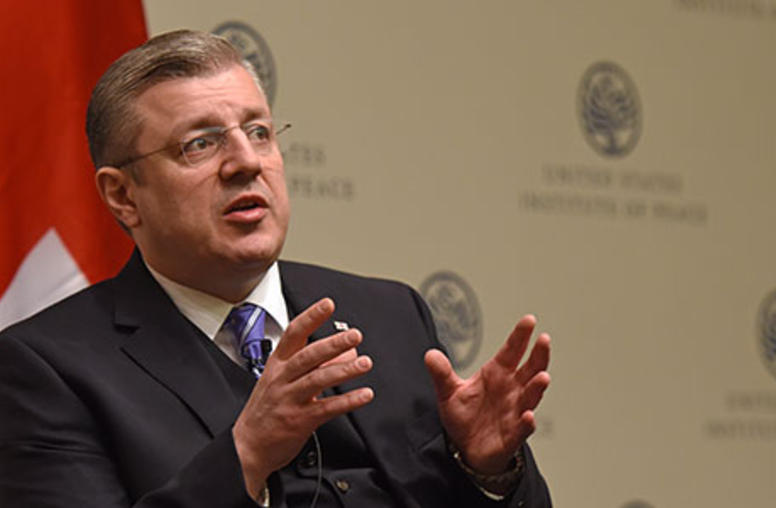
Georgian Prime Minister: Reforms Will Continue
Georgian Prime Minister Giorgi Kvirikashvili said his government is stepping up economic and political reforms to draw greater foreign investment and to strengthen political stability in the face of the country’s confrontation with Russia. Speaking at the U.S. Institute of Peace in his first visit to Washington as prime minister, Kvirikashvili said Georgia will continue its “pragmatic approach” to opposing Russia’s support for separatist movements in two regions of Georgia “in order not to pr...
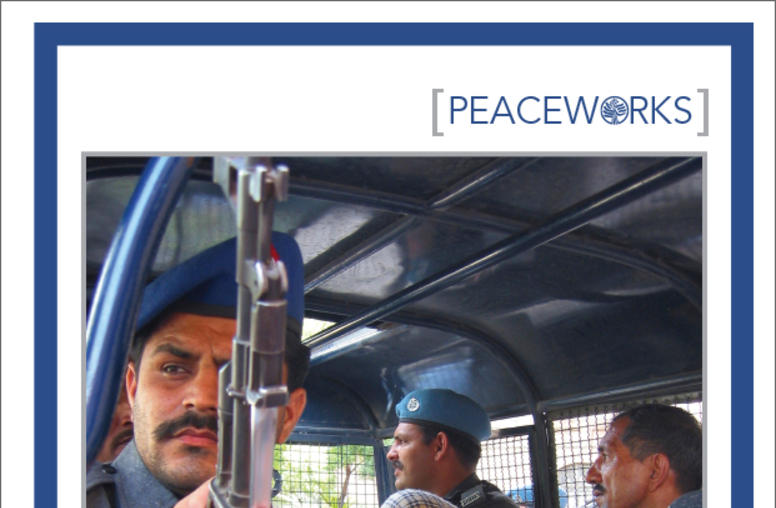
Terrorism Prosecution in Pakistan
Pakistan’s criminal justice system related to terrorism prosecution is in urgent need of reform. Conviction rates in the country’s anti-terrorism courts (ATCs) continue to be extremely low. This report highlights the numerous problems contributing to the system’s failure, including absent defense councils and witnesses, limited use of forensic evidence, poor investigative capacity, and lack of coordination between the police and prosecution. Compounding these problems is the high number of ca...
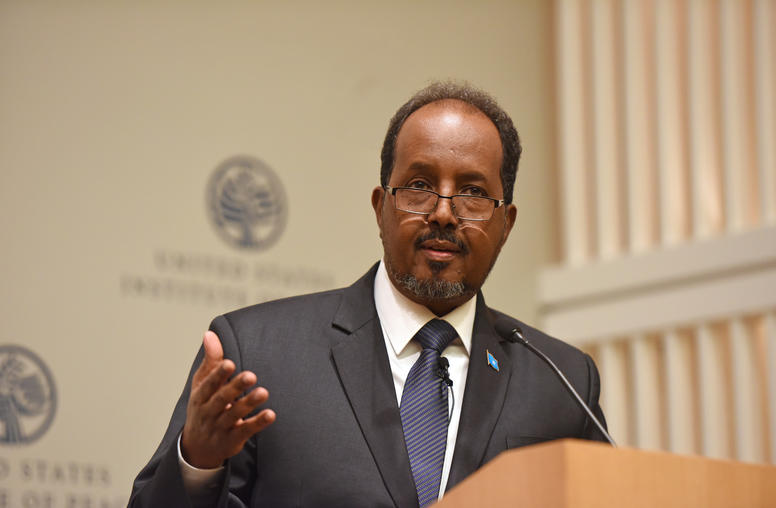
Somalia Seeks Best Possible Elections, More Security Aid
Four years after the formation of a federal government in Somalia, the country has built nascent institutions, but it will need years of financial and security support to make the new state effective, President Hassan Sheikh Mohamud said April 20 at USIP. The country’s next critical step will be to hold national elections before September, a vote that Mohamud said will be less democratic than he and other Somalis had hoped—but an improvement in a country that has not elected any government since 1969.
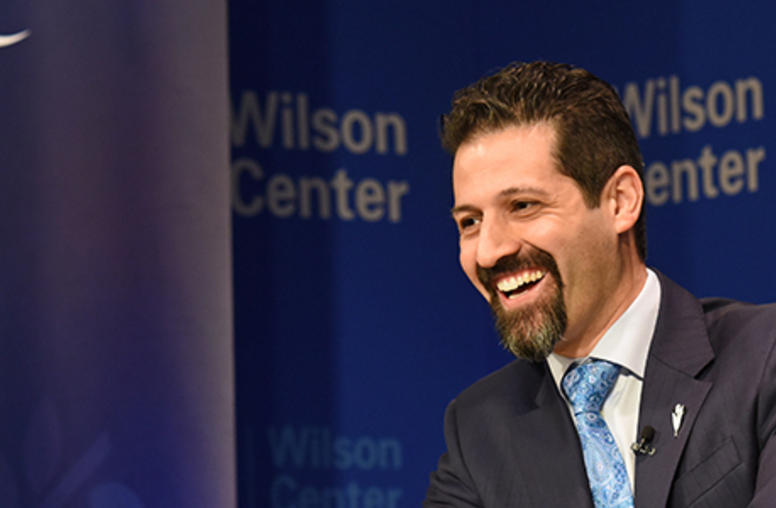
Iraq Operation to Recapture Mosul Needs Plan for Aftermath
The planning taking place to recapture Iraq’s second-largest city, Mosul, from the “Islamic State,” or ISIS, extremist group should involve not only meticulous military preparations but also careful thought to ensuring a peaceful aftermath is sustainable over the long term, said Qubad Talabani, the deputy prime minister of the country’s Kurdish region, which has helped lead the drive to end the extremist organization’s hold on vast swaths of territory. But the Kurdistan Regional Government (K...
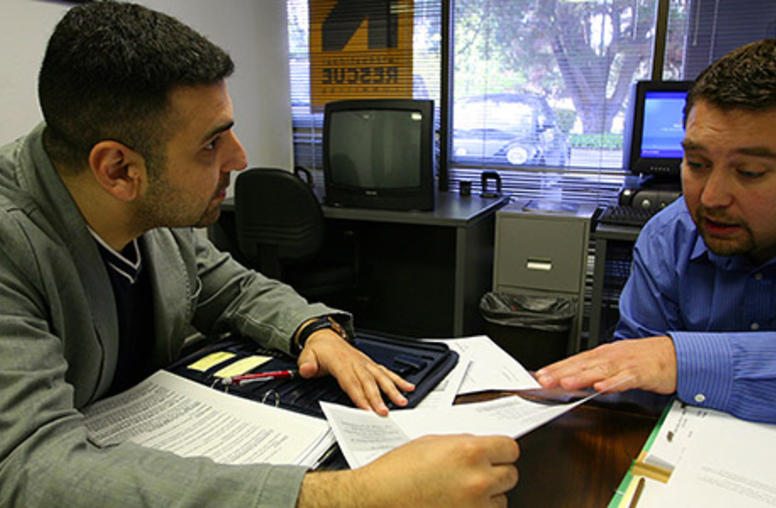
Panel Urges New View of Middle East Refugees
The refugee crisis that has spread to Europe and the breakdown of the Middle East’s century-old political order demand new thinking about the economic role of displaced people and a reassessment of donor strategies to rebuild societies in conflict, a working group convened by the U.S. Institute of Peace concluded. The panel’s report, developed under USIP’s Manal Omar and Elie Abouaoun as part of Atlantic Council’s Middle East Strategy Task Force, calls for refugees to be viewed as potential e...
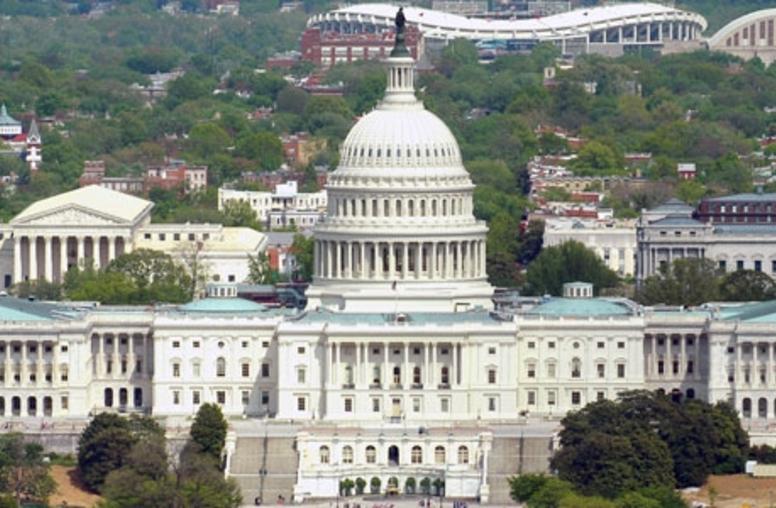
The Causes and Consequences of Violent Extremism and the Role of Foreign Assistance
Nancy Lindborg, USIP president, submitted testimony for the record, to the Senate Appropriations Subcommittee on State, Foreign Operations and related programs.
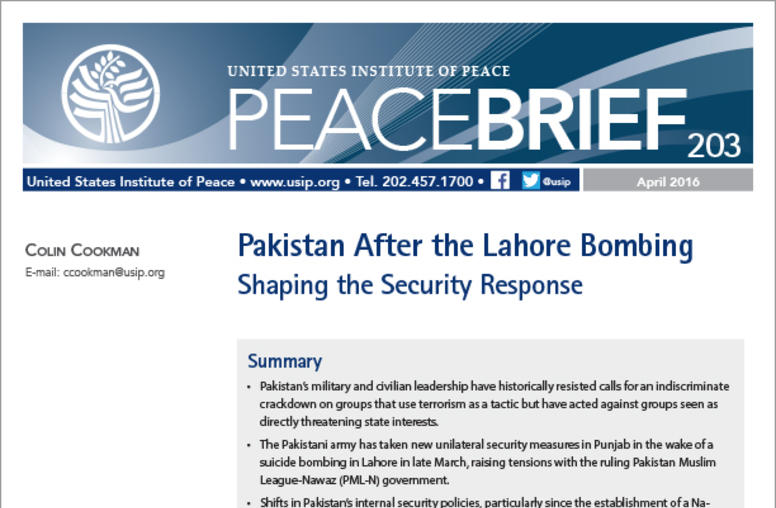
Pakistan After the Lahore Bombing: Shaping the Security Response
Pakistan’s responses to terrorism affect both internal security and the overall balance of power. In light of the attack in Lahore, this brief discusses the implications of the current civil-military relationship and the continuing struggle over who has discretionary power to set and implement relevant policy.
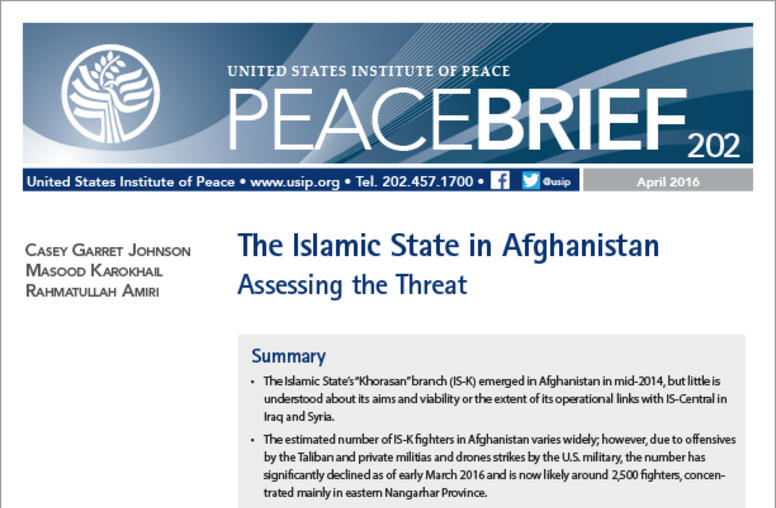
The Islamic State in Afghanistan: Assessing the Threat
While the Islamic State in “Khorasan” (IS-K) gained strength in Afghanistan’s Nangarhar Province starting in mid-2014, Taliban and private militia offensives, as well as U.S. drone strikes, have significantly reduced the total number of fighters as of March 2016. However, several factors could reverse this trend. This brief assesses the viability of IS in Afghanistan and whether it poses a long-term threat in the country.